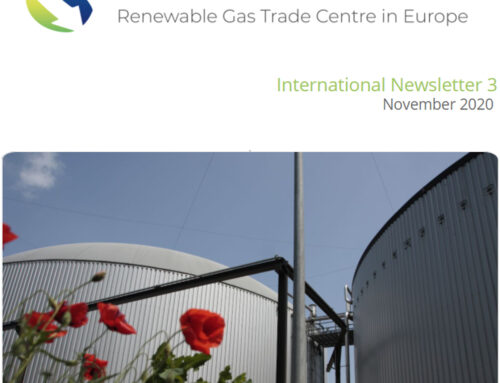The “Order of Regulatory Bases for Investment Aids in Thermal Installations with Renewable Sources” has incorporated aspects that AEBIG suggested in its allegations and which represent an advance in the recognition of the positive impact of biomethane projects in “Just Transition Areas”. Specifically, this will favor the creation of employment in rural areas, as well as the elimination of certain limitations (technical, economic and time) for biomethane projects for injection into the network.
On 29 April 2020 MITECO published a draft proposing some support mechanisms for renewable gas projects, to which AEBIG submitted allegations on 27 May 2020.
On 5 August 2020 the final text was published in the BOE, “Order TED/765/2020, of 3 August, establishing the regulatory bases for the granting, on a competitive basis, of aid for investment in thermal energy production facilities using renewable energy sources, which may be co-financed with European Union funds”.
AEBIG submitted several arguments, which have finally been reflected in the final text of the Order. However, AEBIG considers that the Order could have included some of the arguments relating to the extension of the deadlines for projects, which have finally been disregarded, and which will make it necessary to speed up the development of the projects.
- The deadline for carrying out the actions has been maintained, since “the installations must be completely completed before 30 June 2023, unless the corresponding call for tenders establishes a more restrictive deadline”. AEBIG proposed the extension until 31 December 2024.
- The deadline for justifying the execution of the actions “which must in any case be completed before 30 September 2023” is also maintained. AEBIG proposed an extension to 31 March 2025.
With regards to the arguments presented by AEBIG, which have finally been included in the Order, the following should be highlighted:
- It was also proposed to add in the section referring to “Just Transition Areas” those projects that have a positive impact on job creation and population settlement in rural areas. In this sense:
- The weighting (from 0-30% to 0-40%) of the “Just Transition Areas” criterion has been improved.
- It has also been included as a positive externality, “to favour the economic and social cohesion of the territory through the generation of employment, rural development and the fight against depopulation, among others”.
- The positive externalities also improve their weighting (from 0-30% to 0-40%)
Similarly, the final text of the Order, as recommended by AEBIG, does not include certain limitations on biomethane projects for grid injection, or direct supply for use in vehicles. Specifically, the following limitations no longer appear, and are open to calls for proposals from the various autonomous communities:
- Lower limit of nominal power (1000 kW)
- Maximum eligible unit budget (EUR 790/kW)
- Exclusion of subsidies for projects of installations that replace renewable energies generated by equipment whose start-up has taken place in a period of less than 10 years
Furthermore, AEBIG had also requested an addition to the text to positively weight GHG emissions avoided in biomethane projects, which has not been included in the final text of the Order.
In addition to these changes and novelties in the Order, it is important to remember that the costs of managing the application for aid, as well as the costs of managing the justification of the implementation of the project, will be eligible costs.
On 10 September 2020, the Ministry for Ecological Transition and the Demographic Challenge announced, in a press release, the approval of the first calls for proposals agreed with the regional governments and the IDAE will soon approve the rest of the calls for proposals.
For any queries or suggestions, please contact AEBIG

